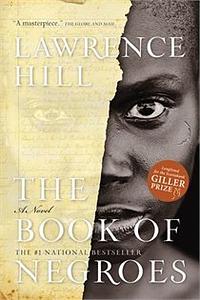You need to sign in or sign up before continuing.
Take a photo of a barcode or cover
I loved this book. Learned much regarding the slave trade and how the Brits and colonies were involved. The characters were interesting and believable and it encompasses a huge amount of history and geography - three different continents and more than fifty years
Now I am going to read the "classic slave narratives" - non-fiction
Now I am going to read the "classic slave narratives" - non-fiction
dark
emotional
inspiring
reflective
sad
Plot or Character Driven:
Character
Strong character development:
Yes
Loveable characters:
Complicated
Diverse cast of characters:
Yes
great book
Great fictional account with a basis in history. An account of Africa, the slave trade, the American Revolution, abolitionist movement in one lifetime. Great read.
Great fictional account with a basis in history. An account of Africa, the slave trade, the American Revolution, abolitionist movement in one lifetime. Great read.
This book begins in England with the abolitionists working to persuade Parliament to outlaw the slave trade. It occurs to me that I don't think I've ever read a book about slavery in the UK. I know it was abolished earlier than it was in the USA, but all the books I've read have been either slavery in the South or in the Caribbean. This one just has a bit that takes place in England with the abolitionists.
challenging
dark
emotional
sad
medium-paced
Great book. Really moving.
This is a rather epic tale. Without thinking too deeply about it, one could be highly impressed, but this is a lesser work than it first appears. It is a fictional tale centered around black slavery in North America. As such, I was able to compare it to Marlon James' very powerful, The Book of Night Women, and Leonard Pitts' eloquent, Freeman. My first sign of problems with this book came from its narrative perspective. Pitts' book was from a typical third person narrative, with most, if not all, of the main characters being women. James' book was a bit different in that, it too concentrated on women characters from a third person, but that narrative came from a source who was clearly storytelling from within the book's community environment. This author, also a male, tells a tale of a woman, too, but directly from that woman's first person perspective. The problem was that I was constantly saying to myself, a woman would not talk that way, act that way, think that way. It never was anything overt. It just never rang true for me. There were also issues of the author not knowing certain medical details well, but throwing them out as if they were obviously true. The next problem manifested itself in how the story narrative seemed to recycle itself over and over again with only a few new characters and a new location being different. Ultimately, it occurred to me that this was the worst form of historical fiction. It was not the type where it was firmly founded on established historical fact and the "fiction" came from historically unknowable character actions and dialogue to flesh out and personalize what happened. No, this was "fiction" in which a few historical facts were thrown in to mark time and to occasionally give a loose structure for the characters to push away from. It was pulp fiction overlaid on a serious subject.
For me, this book was like time traveling. It was so well written and so worth reading that despite the difficult subject matter, I found it very entertaining. The details are graphic, but the story of slavery needs to be told again and again.
didn't think it lived up to all the hype but still a good read.
dark
inspiring
reflective
sad
tense
slow-paced
I liked Someone Knows My Name. It covered about 50 years in the life of Aminata Diallo (known as "Meena" throughout the book as no one could pronounce her name.). At 11 she is abducted from her village in Africa. Her mother and father killed in front of her, and sold into the slave trade. I've wondered what it was like for Africans coming to America during those times and trying to communicate with the slaves that had already been here their whole lives. Aminata is smart. Her story, at first is one you can associate with slavery. Branded, raped by her master, her baby sold away... But, some parts of her life were a little implausible. All in all I found it to be an interesting read. The Book of Negroes, Black Loyalists, Nova Scotians haven't been focused on in a lot of the fictionalized books about slavery that I've read. Aminata is smart. She has an indomitable spirit. The only time you see her give up is when her daughter is kidnapped. Her husband is sold away and risks his life to find her twice, her baby son is sold away. She later finds out that he died at a young age. Her husband dies on a boat that sinks, allegedly taking him to a better life. Through all that with recurrences of hunger and poverty she stays strong. I wished that some of the characters she met along the way were more fleshed out. I also would have liked to know what happened to Fanta. She was from the same village as Aminata. She made the middle passage with her. But, obviously during that time family members could be sold away and you would never know what happened to them. Much less someone who made the journey with you. I am glad, at the end that she reunited with her daughter. It would have been nice if she made it back to her village one last time. Someone Knows My Name is an engrossing book. It leaves you wondering if there was someone like Aminata Diallo that lived during slavery and had such a life.

